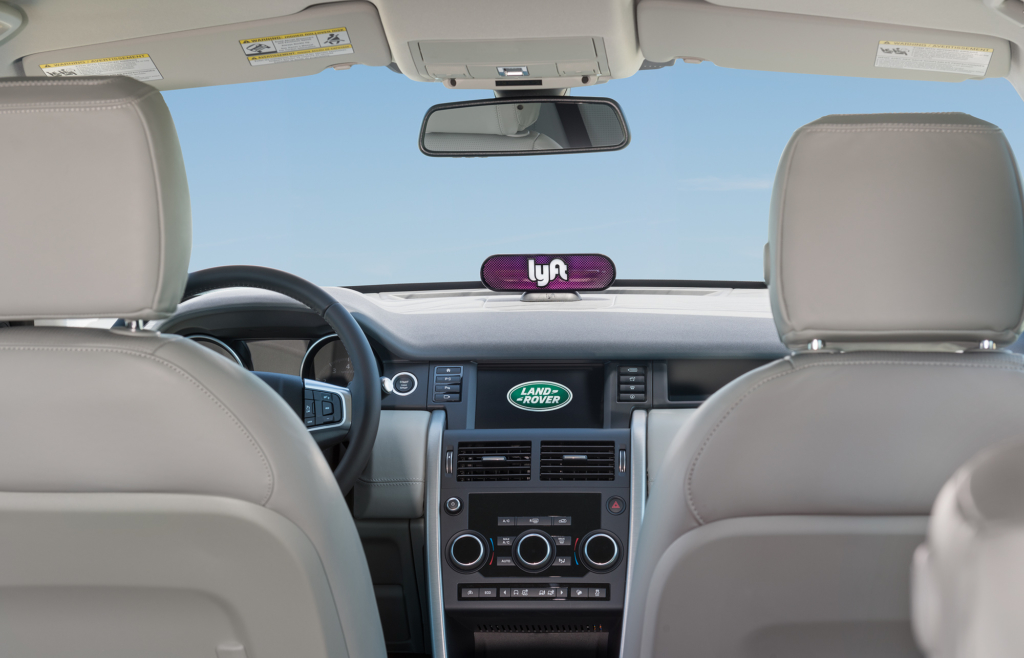
While rival Uber is mired in a high-profile lawsuit with Waymo, Lyft has made several announcements in the past two weeks that solidifies it as a major force in autonomous vehicle development.
Last week, Jaguar Land Rover and Lyft announced they were partnering on autonomous vehicle development. As part of the deal, Jaguar’s InMotion Venture invested $25 million in Lyft. The British carmaker will provide a fleet of Jaguar and Land Rover vehicles for the ride-hailing company’s drivers.
The companies will test not only future mobility services through the deal, but autonomous technology, according to published reports.
Lyft has made a slew of partnerships in the last month. Last week, it partnered with Boston-based startup nuTonomy to test taxis with passengers in the Seaport area of the New England city.
Older partnerships, including Lyft’s $500 million investment from General Motors, have made the company one of the larger players in the autonomous vehicle space. As Inside Unmanned Systems reported, Lyft and Waymo, in an apparent rebuke of Uber, said they would partner on self-driving car technology.
If approved by Boston and Massachusett governments, Lyft customers will be able to take rides in nuTonomy’s self-driving electric Renault hatchbacks. The Boston-based company already is working in Singapore, through a self-driving taxi service program with Grab, a ride-for-hire company.
Mobility Services Gaining Automaker Notice
As electric vehicles and autonomous vehicles continue to gain ground with both the public and technological advances, traditional auto companies are partnering with mobility services companies to gain an early advantage on what many will believe will be a multibillion-dollar market.
At the recent TU-Automotive Detroit meeting in Novi, Michigan, Ridecell and SKODA Poland, which is a subsidiary of Volkswagen Group Poland, said they are partnering on a new carsharing program in that country.
The program, dubbed the Omni service, will use Ridecell’s platform that includes end-to-end automation, car scheduling, instant driver verification, payment processing, demand/supply balancing, and custom analytics, the company said. The Omni-branded app and all operational features are fully localized in the Polish language.
“This one of the first programs to really engage not only the manufacturer, but the dealer group in this country. A lot of these programs are ran by the [original equipment manufacturers], ignoring their dealer body, Paul Drych, Ridecell vice president for new mobility business development, told Inside Unmanned Systems. “This one is fully embraced by the OEM and is one of the fully ran dealer [initiatives],”
The Omni service allows consumers to pick up and drop off Skoda vehicles at parking stations throughout the Warsaw metropolitan area, Ridecell said. In addition, consumers can sign up for the Omni service with an app-based registration process that takes a few minutes. With the app, users can access all available vehicles in the service.
Ridecell developed the Omni-branded application and powers the back-end operations of the service. The Omni service includes end-to-end automation, car scheduling, instant driver verification, payment processing, demand/supply balancing, and custom analytics. The Omni-branded app and all operational features are fully localized in Polish.
Other travel companies and automakers are working with Ridecell to offer carsharing service. AAA Northern California, Nevada and Utah are using its platform to allow users to find a car, get into it and drive it, the company said. The service was recently launched in Oakland and Berkeley, Calif.
BMW Group is working with Ridecell through its Reach Now brand on a carsharing service in Seattle. A similar program is operating in Europe under the Drive Now brand name, BMW said.
The German automaker, which plans to expand in other U.S. cities, said that Seattle’s initial fleet will be 370 BMW and MINI vehicles. More than 20 percent of the fleet will include electric vehicles, the company said.
Lyft Making Moves Ahead of Uber
previous post

